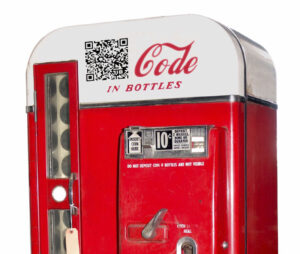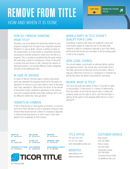A while back we talked about what QR codes are and how we applied them to our marketing process for our Clock Hour Class in December. As a follow up to that post, today, we’re going to talk about how we went about generating our own unique QR codes.
Remember that QR codes have many applications. But, for our purposes, we are using the codes to enable smartphone users to easily find our web page of choice when they point their smart phone at our code which is on a printed flyer. If you think about it, QR codes are adding a whole new level of interactivity to printed materials. We joke about how antiquated print has become, how it’s not really forward-able or shareable, and how you can’t tweet it or add it to your favorites. But now that’s not such a problem because if a print item is QR code-enabled, a person with a smartphone can take action and (in Ticor’s case) register for a class, read a print article on the web, watch an escrow video, or ultimately order title and escrow…
So Here are the steps we took to get and apply our QR code:
1. We decided what page we wanted our readers to land on. In our case we wanted our readers to have an easy way to register for our Real Estate Clock Hour Class via eventbrite.com. Our actual URL was http://foxburyclockhours.eventbrite.com. We’ll call this the landing page URL
2. We copied the Landing Page URL and pasted it into a QR Code generator. We used http://qrcode.kaywa.com/. It’s free and easy to use. The QR code generator created our QR code and we saved it as an image to our hard drive.
3. We added the code to our print piece. We use InDesign, Word, and Publisher for various print pieces and each of them allow us to overlay the QR Code wherever we need to.
4. Finally, we tested it! It’s actually still a thrill to effectively “click” on a piece of paper to navigate to the web!




